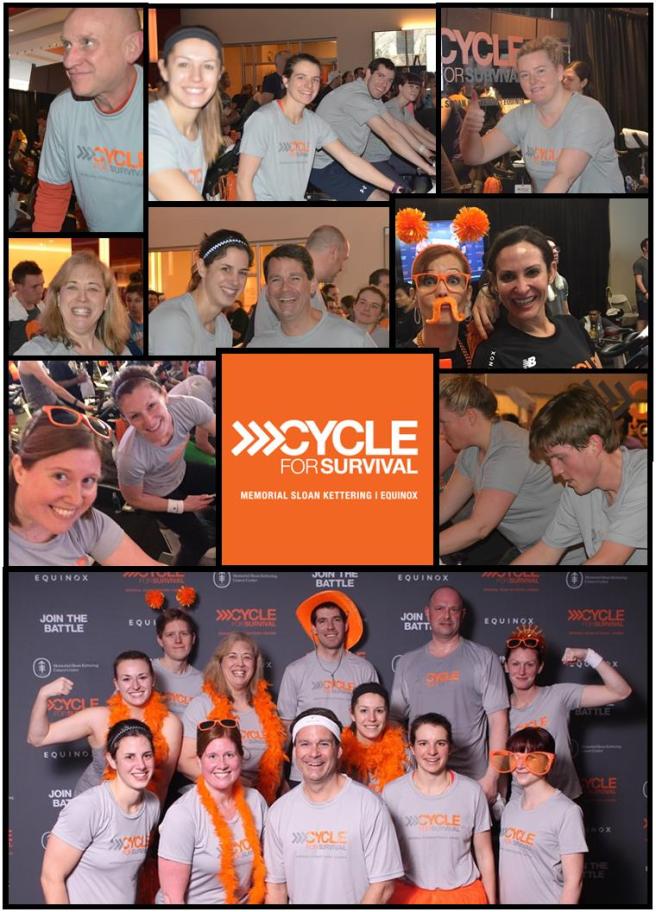
At the 2016 Duke Industry Statistics Symposium, Dr. Robin Bliss, in collaboration with Dr. Jing Wang of Gilead Sciences, lead a discussion on “Biomarker-Driven Clinical Trial Designs for Precision Medicine.” Dr. Bliss highlighted two Adaptive Enrichment Clinical Trials performed by Veristat as case studies for how to select and execute an enrichment clinical trial design.
In a world of precision medicine, biomarker-driven clinical trial designs are gaining attention in drug and biological agent research and development. A biomarker is a characteristic that is objectively measured and evaluated as an indicator of normal biological processes, pathogenic processes, or pharmacologic responses to a therapeutic intervention (NIH). The use of a biomarker-design can improve study efficiency by targeting specific populations and can allow for the focus of research and treatment on each individual patient rather than on an average population.
One subclass of biomarker-driven clinical trials are Enrichment Study Designs. Enrichment is the prospective use of any patient characteristic (e.g., demographic, physiologic, historic, genetic, etc.) to obtain a study population in which the detection of a drug effect is more likely than it would be in an unselected population (FDA Guidance). Enrichment designs can be combined with many other adaptive design techniques such as early stopping for futility and efficacy, sample size re-estimation, and focused studies on particular sub-populations of interest.
Many study designs are available for biomarker-driven research, each having different strengths. The choice of the best study design depends, among other things, on the certainty of the biomarker as a predictive or prognostic factor, the expected difference in mechanism of action and overall effect of the test product among biomarker positive and the overall population, and the prevalence of the disease. For example, in one case study of a rare oncology trial presented by Robin Bliss at the 2016 Duke – Industry Statistics Symposium, there was some preliminary evidence of a biomarker subpopulation that may impact the effectiveness of the novel treatment; however because the disease was so rare, recruitment in the targeted subpopulation would be difficult. The study sponsor selected an adaptive enrichment study design which included a planned interim analysis to evaluate the treatment effect in the biomarker positive subjects and the overall population midway through the study. At that interim analysis, predetermined decision rules were applied to select whether to continue the study with the overall population or with the biomarker positive subjects only. In a second case study presented by Dr. Bliss, the study sponsor had strong confidence of a prognostic biomarker but was unsure of the treatment performance in the complementary population. Here, a stratified enrichment study design was selected to allow comparisons between control and novel treatment in both subpopulations of the rare cancer.
These examples illustrate the complexities of selecting the optimal biomarker study design in order to determine a benefit to a biomarker positive or other subpopulation.
 Robin Bliss, PhD is a Manager of Biostatistics at Veristat who helps clients design and manage their clinical trials, both traditional and adaptive designs. She is experienced working with regulatory agencies, particularly in helping them understand the advantages of applying adaptive designs for biomarker trials.
Robin Bliss, PhD is a Manager of Biostatistics at Veristat who helps clients design and manage their clinical trials, both traditional and adaptive designs. She is experienced working with regulatory agencies, particularly in helping them understand the advantages of applying adaptive designs for biomarker trials.


 An adaptive design is a clinical trial design that allows adaptations or modifications to aspects of the trial after its initiation without undermining the validity and integrity of the trial. An adaptive design consists of multiple stages. At each stage, data analyses are conducted and adaptations take place based on updated information to maximize the probability of success of a trial. In a recent investigation on the use of adaptive trial designs, it was reported that among all adaptive design types that were reviewed: 29% of studies used Group Sequential Design, 16% of studies used Sample Size Re-Estimation, 21% were Phase-I/II or Phase-II/III seamless designs, and 41% were dose-escalation, dose-selection and a mix of others. However, in order to fully understand the advantages of adaptive designs, you have to consider the different types of adaptive designs, their applicable situations, and the so-called operating characteristics, such as average and maximum sample-sizes, early stopping probabilities, and the power.
An adaptive design is a clinical trial design that allows adaptations or modifications to aspects of the trial after its initiation without undermining the validity and integrity of the trial. An adaptive design consists of multiple stages. At each stage, data analyses are conducted and adaptations take place based on updated information to maximize the probability of success of a trial. In a recent investigation on the use of adaptive trial designs, it was reported that among all adaptive design types that were reviewed: 29% of studies used Group Sequential Design, 16% of studies used Sample Size Re-Estimation, 21% were Phase-I/II or Phase-II/III seamless designs, and 41% were dose-escalation, dose-selection and a mix of others. However, in order to fully understand the advantages of adaptive designs, you have to consider the different types of adaptive designs, their applicable situations, and the so-called operating characteristics, such as average and maximum sample-sizes, early stopping probabilities, and the power. This list of adaptive designs is not exhaustive but will provide a quick foundation of understanding of the types of adaptive designs commonly used in clinical trials today.
This list of adaptive designs is not exhaustive but will provide a quick foundation of understanding of the types of adaptive designs commonly used in clinical trials today.
 Robin Brodrick is a Talent Acquisition Consultant at Veristat and an aspiring minimalist. Follow Robin on
Robin Brodrick is a Talent Acquisition Consultant at Veristat and an aspiring minimalist. Follow Robin on 

 Dr. Chang joins Veristat with more than 20 years of experience as a statistician at both biopharmaceutical firms and CROs, including AMAG Pharmaceuticals, Millenium/Takeda Pharmaceuticals, PAREXEL and MTRA. He is experienced with NDA submissions and working collaboratively with the regulatory agencies throughout the clinical trial and submission process. Dr. Chang is also an adaptive design expert, having authored and co-authored dozens of books and peer- reviewed journal publications on adaptive design methodologies and implementation in clinical trials.
Dr. Chang joins Veristat with more than 20 years of experience as a statistician at both biopharmaceutical firms and CROs, including AMAG Pharmaceuticals, Millenium/Takeda Pharmaceuticals, PAREXEL and MTRA. He is experienced with NDA submissions and working collaboratively with the regulatory agencies throughout the clinical trial and submission process. Dr. Chang is also an adaptive design expert, having authored and co-authored dozens of books and peer- reviewed journal publications on adaptive design methodologies and implementation in clinical trials.

 CINDY HENDERSON
CINDY HENDERSON BARRY MILTON
BARRY MILTON VERONICA LUDENSKY
VERONICA LUDENSKY



 Veristat has appointed Spero’s founder and Managing Director, Theresa Bruce, to the newly created position of Vice President of Clinical Operations at Veristat. In her new role, Theresa will provide leadership and strategic oversight to Veristat’s global clinical operations team. She joins Veristat with more than 23 years of clinical research experience in both the pharmaceutical and CRO industry. She is passionate about drug development having spent the last 16 years providing leadership and project management support for numerous oncology trials. Prior to founding Spero Oncology, she was the COO of Nexus Oncology. And, following the acquisition of Nexus by Ockham Oncology, she remained as Vice-President, Global Operations. Originally trained as a nurse, she worked as a Research Sister in a large teaching hospital in Glasgow and subsequently completed her MBA in the city.
Veristat has appointed Spero’s founder and Managing Director, Theresa Bruce, to the newly created position of Vice President of Clinical Operations at Veristat. In her new role, Theresa will provide leadership and strategic oversight to Veristat’s global clinical operations team. She joins Veristat with more than 23 years of clinical research experience in both the pharmaceutical and CRO industry. She is passionate about drug development having spent the last 16 years providing leadership and project management support for numerous oncology trials. Prior to founding Spero Oncology, she was the COO of Nexus Oncology. And, following the acquisition of Nexus by Ockham Oncology, she remained as Vice-President, Global Operations. Originally trained as a nurse, she worked as a Research Sister in a large teaching hospital in Glasgow and subsequently completed her MBA in the city.

 On Thursday, April 28 at 10:40 AM, we invite you to join Paula Wun and an esteemed panel of industry experts will discuss the following:
On Thursday, April 28 at 10:40 AM, we invite you to join Paula Wun and an esteemed panel of industry experts will discuss the following:

 Susan Yadlon is passionate about fostering cats that are unlikely to be adopted, civilizing them, and then introducing them to a loving family. She spent several years as an industry consultant before leaving the consulting world and grounding herself back into industry so she could foster cats. Susan is the Associate Director of Corporate Compliance at Veristat, LLC in Southborough, MA. To learn more about Veristat’s open positions, click
Susan Yadlon is passionate about fostering cats that are unlikely to be adopted, civilizing them, and then introducing them to a loving family. She spent several years as an industry consultant before leaving the consulting world and grounding herself back into industry so she could foster cats. Susan is the Associate Director of Corporate Compliance at Veristat, LLC in Southborough, MA. To learn more about Veristat’s open positions, click 











